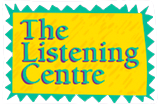David's Story
On that day I awoke to the sound of my alarm clock like any other day. But that day felt different. I felt ill. At first I thought it was just the result of a poor night's sleep. If I rolled over and slept a little longer, my head would surely clear.
It didn't. In fact it got worse — much worse. I was having a stroke. An injury to my neck caused an artery to tear, cutting off the blood supply to my brain. Specifically the oxygen deprivation was burning a very tiny but highly damaging hole in my medulla. Over the course of the next few hours all of the major symptoms would appear — dizziness, light sensitivity, weakness in my left arm and leg, visual migraines, double vision, crushing fatigue, sensory overload, and uncontrolled eye movement. In fact my right eye had twisted and turned in toward my nose and my brain was fighting to keep it in its normal position.
Once the critical phase of the event had passed, my approach to recovery was aggressive. I have spent the two years (and counting) in vestibular, occupational, and vision therapy. Progress on some symptoms was rapid and lasting, but some of the worst symptoms were seemingly intractable. The issues with my vision have been, and continue to be particularly difficult to overcome.
It took several weeks after the stroke before I was able to watch TV in short spurts with just one eye open. In fact, using screens of any kind continues to be a challenge. Reading on a screen for longer than ten minutes sets off a cascade of symptoms starting with dizziness, which leads to a general brain fog, which leads to overwhelming fatigue. Reading a printed page is easier, but after three months of intensive occupational therapy I could only manage twenty minutes of reading — with just my left eye — before my symptoms reached moderate severity.
Then my wife found the Listening Centre while researching neuroplasticity and stroke recovery. Things were about to change.
Prior to my first session I underwent a test to measure my reading mechanics as a part of vision therapy. A device tracked my eyes while reading and measured my rate in words per minute, noted the number of times I tracked back to reread section of text, and watched for skipped lines or words. At the conclusion of the test the software calculated my reading mechanics to be equivalent to that of a 4th grader. I knew it was bad, but having always excelled in language skills, this was a devastating result.
When I started my first session at the Listening Centre I was dreading the thought of sitting for two hours unable to read, or draw, or build a jigsaw puzzle, or do just about anything given my limitations. At first I read comic books as it was easier to look at illustrations with sparse text. But after a couple days of therapy the comic books were getting to be easy to read. I decided to read a book that I had been struggling to read prior to my visit to Toronto.
At first I could only read for twenty minutes with just my left eye — then that became easy. Over the course of the next two weeks of therapy I began to read longer and with both eyes! By the end of my first round of therapy I was reading for the entire two hours of each session. And most importantly, the rapid improvement held over time.
Shortly after returning from the Listening Centre I repeated the reading test at vision therapy. The result shocked the doctors and made me ecstatically happy — I had jumped from the mechanics of a 4th grader to the mechanics of a 10th grade reader! During my second round of listening therapy my reading continued to improve. I shifted from light fiction to serious literature. I also began to sketch for the first time since the stroke. My fine motor skills and eye movement were rapidly and dramatically improving in listening therapy after months of occupational, vestibular, and vision therapy had not been able to improve them.
After the second round of listening therapy I had my reading skills measured a third time. My reading mechanics are back to a collegiate level, and I can read academic texts with ease and for stretches measured in hours. I still struggle with reading from a screen, and cannot use a computer for more than ten minutes without symptoms, but I can read whatever book I choose for as long as I want to read it.
There is no doubt in my mind that the therapy offered by the Listening Centre effected this change.
 Skip Navigation
Skip Navigation